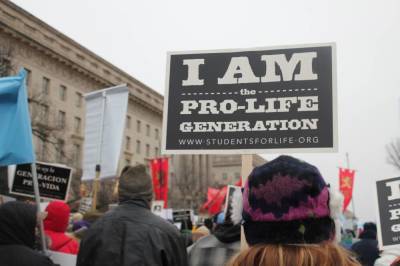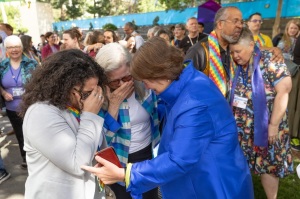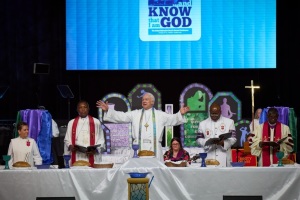UMC Votes to Leave Religious Pro-Choice Group Known for Pushing Abortion on Demand Up to 9 Months

The United Methodist Church voted to sever ties with an interfaith abortion advocacy group, ending an affiliation that has existed for more than four decades.
Delegates at the UMC's General Conference passed a proposal Thursday ending the Mainline Protestant denomination's ties to the Religious Coalition for Reproductive Choice.
"RCRC is a one-sided political lobby that opposes all disapproval or limitation of abortion," read the proposal, which was adopted in the vote of 425 ayes to 268 nays.
"RCRC's advocacy often directly contradicts our social principles on abortion, but it still uses our Church's name. Several annual conferences and many United Methodist leaders have urged the Church to end all association with RCRC."

Founded the same year as the U.S. Supreme Court's 1973 decision Roe v. Wade, the Religious Coalition for Reproductive Choice was originally named the Religious Coalition for Abortion Rights.
"While our member organizations and individual supporters are religiously and theologically diverse, they are unified in the commitment to preserve reproductive choice [abortion] as a basic part of religious liberty, and to be a collective, religious voice for reproductive justice," stated the RCRC on their website.
RCRC told The Christian Post back in 2013 that the organization opposes all restrictions on abortion, including bans on abortion during the third trimester of pregnancy.
Proponents of severing all ties to the RCRC argued that the views of RCRC conflict with the UMC's official position on abortion, which among other things opposes late-term abortion except for certain circumstances.
"Our belief in the sanctity of unborn human life makes us reluctant to approve abortion. But we are equally bound to respect the sacredness of the life and well-being of the mother and the unborn child," states the UMC.
"We recognize tragic conflicts of life with life that may justify abortion, and in such cases we support the legal option of abortion under proper medical procedures by certified medical providers."
Supporters of the RCRC relationship noted that the UMC was a "founding member" of the RCRC and that several diverse religious groups are also involved.
"[I]nternationally, the Religious Coalition is an accredited nongovernmental organization with the United Nations Department of Public Information which supports international family planning services in such areas as South Africa where the coalition works with churches on HIV/AIDS education and prevention," stated a pro-RCRC resolution from a past General Conference.
The resolution quoted above, passed in 2008, was itself officially deleted in a vote taken following the passage of this year's proposal to cut ties to the RCRC.
John Lomperis, member of the conservative Institute on Religion & Democracy and a delegate at this year's UMC General Conference, celebrated the vote.
"This is a necessary and good step toward affirming that the unborn are persons of sacred worth. This also shows the UMC moving away from other liberal, declining, 'Mainline' denominations to embrace a new faithful, global identity," said Lomperis in a statement
"In contrast to the United Methodist Church, RCRC dismisses the value of unborn human life. RCRC even promotes rituals to bless all the work of elective abortion clinics, describing aborting unborn children as always 'holy work.'"




























